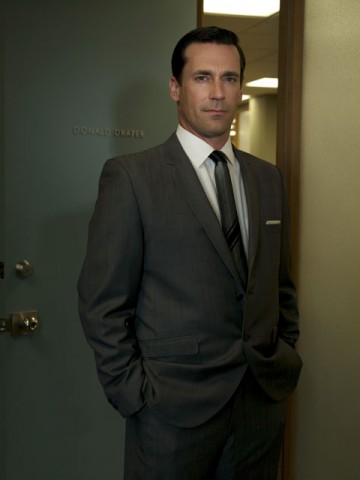“My characters are fictional. I get ideas from real people, sometimes, but my characters always exist only in my head.” -S. E. Hinton
“Any writer’s work is a map of their psyche. You can really see what their concerns are, what their obsessions are, and what interests them.” -Kim Addonizio
“To ask an author who hopes to be a serious writer if his work is autobiographical is like asking a spider where he buys his thread. The spider gets his thread right out of his own guts, and that is where the author gets his writing.” -Robertson Davies
***
A few nights ago, Olivier, the cat and I were curled up in bed, enjoying our pre-sleep reading time. Me & Cat with a paperback; Olivier reading my latest short story published by an online literary journal.
When he finished, he turned to me and said, “Yeah, I know where you got that idea from.”
“What? No you don’t. I made it up.”
“Sure. Parts of it, but I recognize a few traits in the main character and the setting. I see the parts you didn’t make up.”
“How?”
He shrugged. “Probably because I already know so many of your real-life stories. Most of your fiction is a Frankenstory made from bits of your imagination stitched together with chunks of your experiences.”
I admit it. I’ve cannibalized people that I’ve encountered in my life. I’ve taken bits and pieces of one person, mixed them with another person and given them the physical appearance of another. Fragments of conversations and memorable incidents get thrown in. The character that appears in the story is something akin to my very own Frankenstein’s monster, all made up of stitched together scraps from various impressions that others have left on me.
For me personally, I try to stay away from putting an exact copy of a living person in one of my fictional stories – for several reasons. But, other people have been known to do it – with great success.
Read any novel by Céline, Hemingway or Kerouac. Or Bukowski. Or John Fante. Or Tom Spanbauer and a million others. There’s truth and real life in their fiction. Sometimes, only the names have changed. The roman à clef has been around for hundreds of years.
Even some of the most famous and well-loved fictional characters were inspired by real people.
 |  |  |  |
Without so many weird and fascinating real-life characters, we couldn’t have so many great fictional ones. So, from time to time, a writer must cannibalize. The title story of my short story collection, Human Detritus, is about this very thing.
It’s not only the fictional characters that are born from reality. It’s the places, too. Anyone who was hanging around me in the offline, real world from 2002-2003 will recognize the seedy apartment building from my stories Shit Water and Evan Fading. Not to mention the cities and landmarks in stories like A Moment in Montmartre.
This is what “write what you know” means. It doesn’t mean if you really know a lot about growing tomato plants and removing stubborn stains from boxer shorts that you should only write about a gardener who shits himself a lot. It means you need to open yourself; to rip yourself apart at the seams and pull out the stuffing. Extract the memories, emotions and experience. Examine the scars. The guilt. The anger and the hilarity.
It’s the reason why Harry Crews never wrote about slick Wall Street guys in New York City and why Bret Easton Ellis doesn’t tell many stories about skid-row types down south running dog fights.
So… what’s up with writers? Why do we think we’re so fucking special that our lives and our stories, our feelings and our experiences are worth telling?
Because we wrote this shit down. Really. It is that simple.
Okay, some people are better at writing shit down than others. Some have a greater imagination. That has something to do with it, too. However, in the end, the most significant difference is Those Who Grabbed a Pen vs. Those Who Didn’t.
But, why? Why the compulsion to invent stories based on our memory fragments and mind movies?
I can’t answer for all those other writers. I can tell you that for me, it’s an attempt to make sense of being alive. It’s capturing a fragment of human existence in a tiny shard of amber. It’s an exorcism. It’s taking an enormous shit to relieve myself of relentless stomach cramps.
It isn’t all about me, though. Once someone else reads it, it stops being about me. A reader brings their own shit into it and in many cases, reads something completely different than what I’ve written. Telling my truth under a fictional façade isn’t just about ripping myself open to show you all of my ugly and ridiculous insides. It’s about reaching a hand out to another person and saying, “Hey, fucked up things happen. People are capable of terrible things. Life is complicated and it hurts a lot, but we face it. We go through it and until we are pressed down into ashes and dust by the World, we will have proven that we can be so much more than fleeting flecks of goddamn nothing.”
Since Olivier is the very first person to see any of my work, before anyone in my critique group, before editing and way before publishing, he’s pretty much read everything I’ve written so far. So, when he told me he was able to see all the stitching, seams and knots on my Frankenstories, I began quizzing him about various stories I’d written to see if he really could spot the truth. The pieces of the real me hiding between the lines. He knows me better than anyone and is the best equipped to find me lurking anywhere.
“Well, what about the one I just finished that took place in Denmark?”
He nodded. “Yeah, I could see traces of a couple of people we met there. And my uncle.”
“Your uncle? That’s weird,” I said. “I wasn’t really thinking of your uncle when I wrote it.”
“Really? Huh.” He opened his book, pulled out the bookmark and turned his head away from me and toward his story about WWII. “Weird. I guess I brought him into it myself.”
“Yeah. I guess you did.”
***
“All art is autobiographical; the pearl is the oyster’s autobiography.” -Fellini